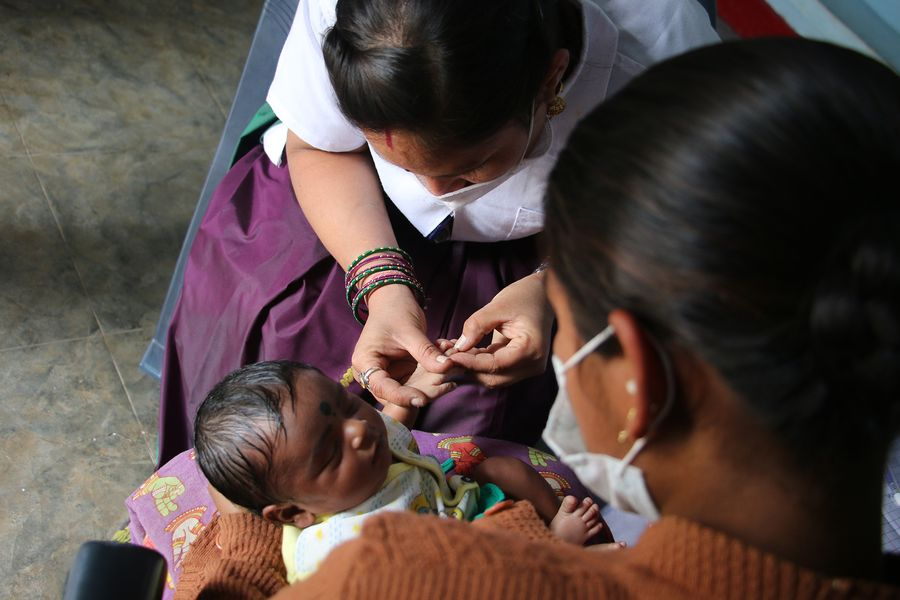Childhood obesity is a growing concern globally, posing significant health risks to children and adolescents. As we move into 2024, new and innovative strategies are being developed to address this critical issue. This article explores the latest approaches to combating childhood obesity, focusing on prevention, intervention, and long-term health improvements.

Understanding Childhood Obesity
The Scope of the Problem
Childhood obesity is characterized by excess body fat that negatively impacts a child’s health and well-being. It increases the risk of developing chronic conditions such as type 2 diabetes, cardiovascular diseases, and psychological issues. According to the World Health Organization (WHO), the prevalence of childhood obesity has risen dramatically in recent decades, making it a public health priority.
Causes of Childhood Obesity
The causes of childhood obesity are multifaceted, including genetic, behavioral, and environmental factors. Poor dietary habits, lack of physical activity, and sedentary lifestyles are significant contributors. Additionally, socio-economic factors and family influences play a crucial role in shaping children’s health behaviors.
Innovative Prevention Strategies
School-Based Programs
Schools are an essential setting for obesity prevention. Innovative school-based programs in 2024 focus on integrating comprehensive nutrition education and physical activity into the curriculum. Initiatives such as farm-to-school programs, which provide fresh, locally sourced produce for school meals, are gaining traction. These programs not only improve the nutritional quality of school meals but also educate students about healthy eating habits.
Technology and Mobile Apps
The rise of technology has paved the way for mobile apps and online platforms designed to promote healthy lifestyles among children. These apps offer interactive and engaging ways to encourage physical activity and healthy eating. Features include gamified exercise routines, virtual cooking classes, and tracking tools for monitoring dietary intake and physical activity levels. By leveraging technology, these tools make it easier for children and their families to adopt and maintain healthy behaviors.
Community Involvement
Community-based initiatives are crucial in the fight against childhood obesity. Innovative programs in 2024 emphasize creating supportive environments that promote physical activity and healthy eating. This includes developing safe recreational spaces, community gardens, and local health campaigns. Collaborations between schools, local businesses, and healthcare providers ensure a holistic approach to preventing obesity.
Effective Intervention Strategies
Personalized Health Plans
Personalized health plans tailored to individual needs and preferences are becoming more popular. These plans consider factors such as genetics, lifestyle, and environmental influences to create customized interventions. Healthcare providers work closely with families to develop realistic and sustainable goals, ensuring that interventions are effective and manageable.
Behavioral Therapy
Behavioral therapy is an essential component of obesity intervention. In 2024, innovative approaches to behavioral therapy involve family-based treatments that engage both children and their parents. This holistic approach addresses the entire family’s lifestyle and behavior, fostering a supportive environment for lasting change. Techniques such as motivational interviewing and cognitive-behavioral therapy (CBT) are used to help families adopt healthier habits.
Medical Interventions
In some cases, medical interventions may be necessary to address severe obesity in children. The latest advancements in bariatric surgery and pharmacotherapy offer promising options for adolescents who have not responded to traditional interventions. These medical treatments are complemented by comprehensive lifestyle modification programs to ensure long-term success.
Long-Term Health Improvements
Sustainable Lifestyle Changes
Sustainable lifestyle changes are the cornerstone of long-term obesity management. Programs focusing on gradual, manageable changes in diet and physical activity are more effective than drastic, short-term interventions. Emphasizing the importance of balanced nutrition, regular exercise, and mental well-being helps children and their families develop lifelong healthy habits.
Ongoing Support and Monitoring
Continuous support and monitoring are crucial for maintaining weight loss and preventing relapse. Innovative approaches in 2024 include regular follow-ups with healthcare providers, access to online support groups, and continuous engagement through mobile apps. This ongoing support ensures that children and their families remain motivated and committed to their health goals.
Conclusion
Addressing childhood obesity requires a multifaceted approach that includes prevention, intervention, and long-term management strategies. The innovative approaches being developed in 2024 offer hope for effectively combating this critical public health issue. By focusing on personalized, community-based, and technology-driven solutions, we can create a healthier future for our children.

